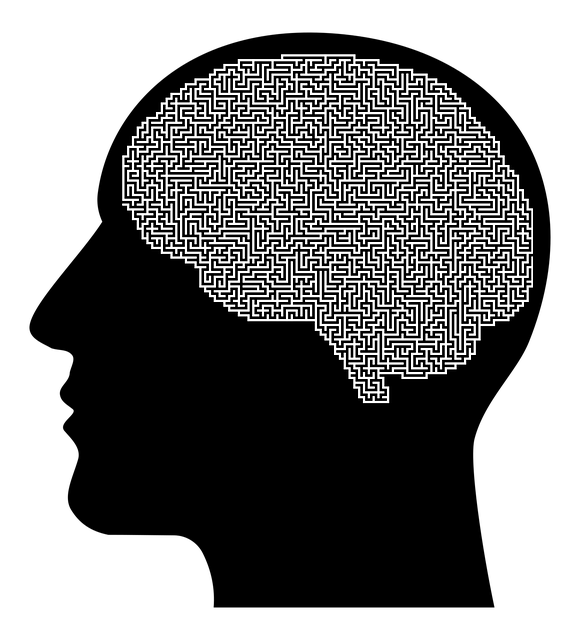Lone Tree Acceptance and Commitment Therapy (ACT) offers a unique crisis intervention approach focusing on psychological flexibility, encouraging mindful acceptance of negative emotions without judgment to foster non-reactivity. This method addresses immediate crises while tackling underlying mood management and stress issues. Stress management workshops based on ACT principles provide practical tools for coping with stress and preventing future crises. By integrating ACT techniques into healthcare, providers can assist patients in managing distressing emotions and promote mental wellness across diverse cultural contexts.
“In times of crisis, effective intervention can be a lifeline. This article explores the power of Lone Tree Acceptance and Commitment Therapy (ACT) as a guiding strategy for professionals navigating turbulent situations. We delve into the core principles of ACT, highlighting its unique approach to acceptance and commitment. By examining key techniques, readers will gain valuable insights into managing crises, from understanding emotional dysregulation to promoting positive behavioral changes. Discover how these evidence-based practices can be seamlessly integrated into real-world scenarios, ensuring a more responsive and effective crisis intervention.”
- Understanding Lone Tree Acceptance and Commitment Therapy (ACT) in Crisis Intervention
- Key Strategies for Effective Crisis Intervention
- Practical Application of ACT Techniques in Real-World Scenarios
Understanding Lone Tree Acceptance and Commitment Therapy (ACT) in Crisis Intervention

Lone Tree Acceptance and Commitment Therapy (ACT) offers a unique and effective approach to crisis intervention, focusing on helping individuals accept their experiences and commit to valued actions. This therapy goes beyond traditional problem-solving by encouraging clients to develop psychological flexibility, enabling them to navigate challenging situations with resilience. ACT involves mindful acceptance of negative emotions and thoughts without judgment, fostering a non-reactive mindset that is key to effective crisis management.
By integrating this approach, crisis intervention strategies can be tailored to address not only the immediate crisis but also underlying issues related to mood management and stress. Unlike other therapeutic methods that might dwell on the problem, ACT guides individuals to disconnect from negative thoughts and emotions, allowing them to make meaningful choices aligned with their personal values. This is particularly beneficial in advocating for mental health policy analysis and advocacy, as it empowers individuals to take control of their mental well-being and contribute to broader discussions around mental health care. Additionally, organizing stress management workshops based on ACT principles can equip people with practical tools to cope with stress and prevent future crises.
Key Strategies for Effective Crisis Intervention

In times of crisis, whether it’s a personal or professional dilemma, effective intervention strategies can make all the difference. One evidence-based approach that has gained prominence is Lone Tree Acceptance and Commitment Therapy (ACT). ACT encourages individuals to accept their emotions and thoughts without judgment, fostering a mindset that promotes psychological flexibility. This strategy helps people navigate challenging situations by focusing on values-driven actions rather than avoiding distressing feelings, which can be a powerful tool in crisis intervention.
Additionally, developing robust mental wellness coaching programs offers a proactive approach to depression prevention. By equipping individuals with coping mechanisms and resilience, these programs empower them to manage crises effectively. In the context of healthcare, burnout prevention strategies for healthcare providers are essential, as they promote self-care and emotional well-being, ensuring professionals can maintain their effectiveness during high-stress periods.
Practical Application of ACT Techniques in Real-World Scenarios

In real-world scenarios, the practical application of Lone Tree Acceptance and Commitment Therapy (ACT) techniques can significantly enhance crisis intervention strategies. ACT focuses on cultivating present-moment awareness, accepting one’s internal experiences, and committing to actions aligned with personal values. This therapeutic approach is particularly useful in high-pressure situations where individuals may be struggling with distressing emotions or thoughts. For instance, a healthcare provider equipped with ACT skills can assist patients in managing the anxiety associated with receiving challenging medical diagnoses by encouraging them to observe their feelings without judgment, thereby fostering better self-regulation.
By integrating ACT techniques into crisis intervention protocols, mental wellness professionals can improve their ability to support individuals across diverse populations and cultural backgrounds. This is especially relevant in a healthcare setting where cultural competency training for providers plays a crucial role. The acceptance aspect of ACT encourages flexibility in thinking and behavior, which can be beneficial when navigating complex cultural or personal beliefs. For example, in situations involving self-esteem improvement among adolescents from different ethnic backgrounds, ACT techniques can help address underlying values conflicts and promote a more adaptive response to external pressures, ultimately enhancing their overall mental wellness.
Lone Tree Acceptance and Commitment Therapy (ACT) offers a powerful framework for crisis intervention, emphasizing mindfulness, acceptance, and values-driven actions. By integrating key strategies like defusing, validating, and guiding individuals toward their values, practitioners can effectively support those in distress. The practical application of ACT techniques in real-world scenarios demonstrates their versatility and impact, making Lone Tree ACT a valuable tool for professionals navigating crisis situations.














